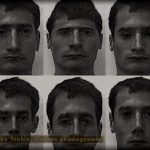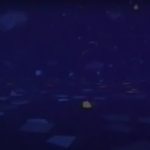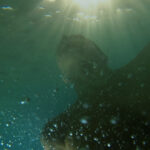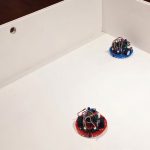Mark D. Pesce, John Tonkin: BlueStates: Exploring Relational Space
Title:
- BlueStates: Exploring Relational Space
Artist(s) and People Involved:
- Mark D. Pesce
- John Tonkin
-
- University of Sydney
Exhibiting Artist(s):
Symposium:
Venue(s):
Creation Year:
- 2006
Artist Statement:
Cities are not merely collections of buildings; they are the living, breathing, teeming product of the human bodies who inhabit them. A city razed to the ground may recover, but a city emptied of people is dead. Yet emphasis is always given to the locative nature of a city – the neighborhood you live in, the street, the floor, the unit – an assertion of a Cartesian primacy which ignores the more profound natural relationships of the city: the coming together and parting of human beings living social lives. Cities are their people; souls are the bricks from which a city is constructed.
BlueStates: Exploring Relational Space is an attempt to reverse the figure and ground of the city, ignoring its visible nature as a locative, Cartesian space, creating, instead, a view of the city purely as a social space. In this work, the trope of absolute location is abandoned in favor of the idea of relational proximity. BlueStates does not show you where you have been, but rather, it shows you who you have been with – a more perfect metric for the inner life of the city.
The inspiration for BlueStates is drawn from the recognition that most of us, most of the time, carry that most common of 21st century appliances, the mobile phone. Most of these mobile phones are equipped with a wireless technology known as Bluetooth. A Bluetooth mobile phone user creates a radius of electronic awareness – what we call a “bluesphere” – extending as much as ten meters from their body. When two Bluetooth devices pass in proximity to one another, each senses the other. Data is exchanged – and promptly ignored. BlueStates: Exploring Relational Space uses its own, custom software sensors – which run on mobile phones, PDAs and computers – to listen intently to the bluesphere. These sensors contribute to a database record of proximal encounters, and this data is then used to build views into the social life of the city’s residents.
BlueStates is by its nature a highly participatory work. Anyone will be able to visit the website and create their own views into relational space. Residents of cities around the world will be encouraged to add their own sensors to the global network of sensors, expanding the database to incorporate the inner social life of their own cities. Beyond this, the work’s creators have committed to releasing all software developed for the project as as free and open source software (under the GNU General Public License), believing this will encourage others to create their own projects in relational space. Finally, artists will be provided with tools to that will allow them to permute the data gathered by BlueStates: Exploring Relational Space in new and unique ways.
The two artists behind BlueStates have spent their careers exploring the intersection between art and technology.
Category:
All Works by the Artist(s) in This Archive:
- Mark D. Pesce
- More Art Events from Mark D. Pesce in this archive:

BlueStates: Exploring Relational Sp...
[ ISEA2006]- John Tonkin
- More Art Events from John Tonkin in this archive:

Elective Physiognomies
[ ISEA95]
The Perfectible Self
[ ISEA97]
Air Water Part 2
[ FISEA'93]
BlueStates: Exploring Relational Sp...
[ ISEA2006]
Experiments in Proximity
[ ISEA2013]
nervous robots
[ ISEA2011]
Precipice
[ ISEA2024]





